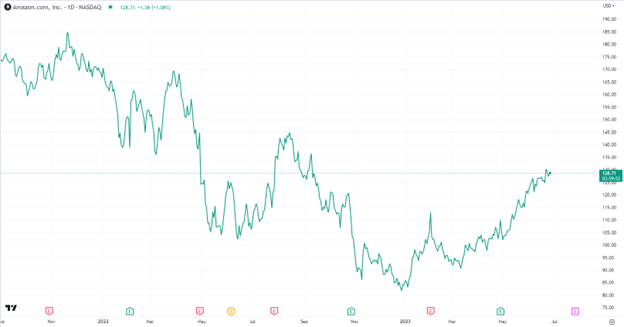For many years, there has been a growing wave of people learning how to buy stocks in the UAE. The main reason for this popularity is simple: today, stocks in the UAE offer a potential for high returns, making them one of the most rewarding investment assets.
For example, the S&P 500 Index—which tracks the performance of the top 500 stocks in the US—grew by 106.80% in the past five years, amounting to an annualized return of 21.36%. In comparison, the best annualized return on savings accounts in the UAE is 1.75%, while the yield on a 50-year treasury bond is 2.7%.
Before investing in stocks, ensure a solid financial foundation: pay off high-interest debts, set up an emergency fund, and budget for regular savings and investments. Then, follow the simple steps below to start investing.
Step 1.
Grasp the UAE Stock Market
To invest in the UAE stock market, understand the two primary exchanges: the Dubai Financial Market (DFM) and the Abu Dhabi Securities Exchange (ADX).
These exchanges allow trading of shares in UAE-listed companies, each with its own regulations and trading hours. Familiarize yourself with their rules to navigate the market effectively.
Dubai Financial Market (DFM)
- Established in 2000, regulated by the Securities and Commodities Authority (SCA).
- Initially owned by the Dubai government, it became a public joint-stock company in 2006.
- Lists over 170 securities, adhering to Sharia principles, including companies from the UAE and other Gulf countries.
- Trading hours: Sunday to Thursday, 10am to 1:50pm.
Abu Dhabi Securities Exchange (ADX)
- Also established in 2000 and regulated by the SCA.
- Lists 73 securities, focusing on UAE companies.
- Trading hours: Sunday to Thursday, 10am to 1:50pm.
Step 2.
Define Investment Goals
Next, it’s essential to define your investment goals. What do you aim to achieve with your investments? Are you seeking long-term capital growth, regular income, or a mix of both? Are you investing in retirement, education, or a specific financial target? Clearly outlining your objectives will shape your investment strategy and guide your decisions.
Step 3.
Analyze and Choose Stocks
Thorough research is crucial for investing in the UAE stock market. Start by identifying companies that match your investment goals. Focus on stable, well-established firms with strong performance records. Examine their financial statements, including revenue, earnings, and debt levels.
Consider market trends, industry outlook, and competitive advantages. Use financial news, research reports, and online resources to gather information and make informed investment decisions.
Step 4.
Create a Trading Account
After completing your research, open a trading account with a licensed firm. Century Financial has been in the industry for 35+ years and is regulated by the SCA (Securities and Commodity Authority). It has been the first choice of UAE Investors for meeting their investment and trading needs.
Consider account minimums, transaction costs, and the availability of online trading platforms. Once you choose the platform, complete the account opening process, submit the required documents, and fund your account.
Step 5.
Monitor and Manage Your Investment
Investing in the UAE stock market requires ongoing monitoring and management. Keep up with market trends, economic news, and company updates that may affect your investments.
Regularly review your portfolio’s performance and make necessary adjustments, but avoid impulsive decisions based on short-term market changes. Focus on the long-term potential of your investments and adhere to your strategy.
Finally, if you’re uncertain about stock market investing or need personalized guidance, consider consulting a qualified financial advisor like Century Financial
Conclusion
Investing in the UAE stock market may seem intimidating at first, but with the right knowledge and guidance, it can be a rewarding experience.
Investing in the UAE stock market requires patience, discipline, and continuous learning. Stay updated with market trends through news and social media, seek advice from financial professionals if needed, and consider joining investment communities or forums to exchange ideas and insights.















